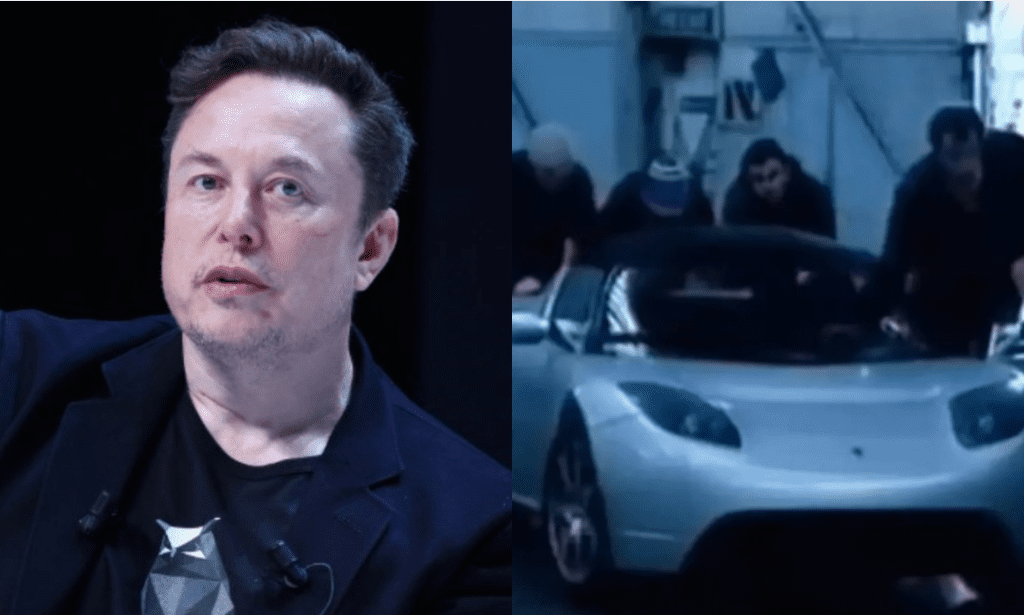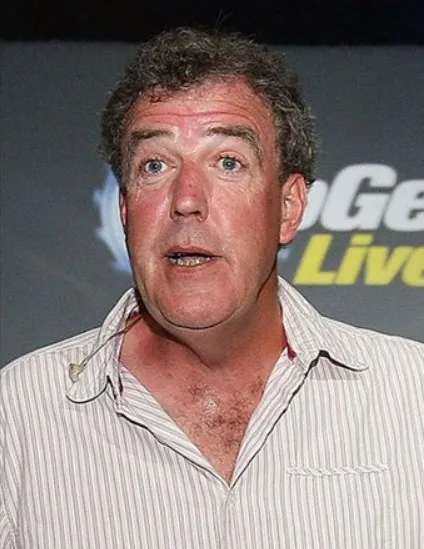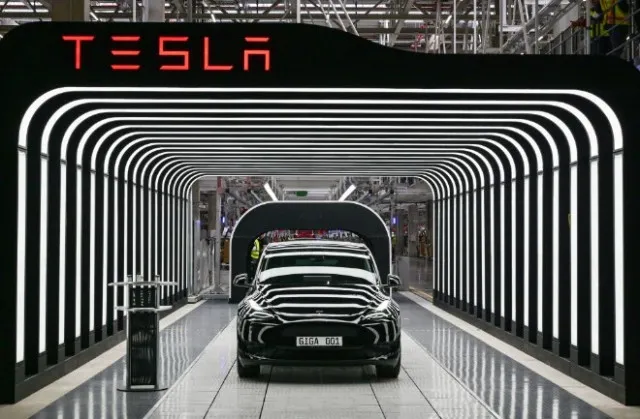A Clash of Titans: Elon Musk Takes on Top Gear
Elon Musk, the enigmatic CEO of Tesla, is no stranger to headlines. Known for his bold ideas and unrelenting pursuit of innovation, Musk has often found himself at odds with critics and media outlets. One of the most notable examples of this came in 2011 when Musk sued the BBC, the producers of Top Gear, for $171,000 over what he claimed was a damaging and misleading review of the Tesla Roadster.
This legal battle became a pivotal moment for Tesla, sparking discussions about media responsibility, the future of electric vehicles, and Tesla’s place in the automotive industry. Let’s take a closer look at the controversy, the legal fallout, and how it ultimately shaped Tesla’s trajectory.

The Tesla Roadster’s Debut: A Revolutionary Vehicle
The Tesla Roadster was a game-changer when it hit the market. Launched in 2008, it was one of the first all-electric sports cars, boasting impressive acceleration and groundbreaking technology. For Tesla, the Roadster wasn’t just a car—it was a statement.
The vehicle represented Musk’s vision for a sustainable future, where electric vehicles could rival, and even surpass, their gas-powered counterparts. The Roadster’s sleek design and performance quickly caught the attention of car enthusiasts and media outlets alike. Among these was Top Gear, one of the world’s most popular automotive shows.
Top Gear’s Controversial Review
In 2008, Top Gear aired an episode featuring the Tesla Roadster. Hosted by the outspoken Jeremy Clarkson, the show praised the car’s acceleration, famously calling it “biblically quick.” However, the tone quickly shifted when Clarkson claimed the car ran out of charge after just 55 miles.
The episode showed the Roadster being pushed back into the garage, implying that it had completely lost power. This portrayal raised serious questions about the vehicle’s reliability and range—key selling points for any electric car.
Tesla, however, disputed these claims. The company argued that the car’s logs showed it never dropped below 20% battery charge during the test. According to Tesla, the footage of the car being pushed was staged to dramatize what could happen if the battery were to run out, rather than what actually happened during the test.
Elon Musk Fights Back: The $171K Lawsuit
Tesla reacted strongly to Top Gear’s review, accusing the show of spreading false information that damaged its reputation and sales. In March 2011, Elon Musk filed a lawsuit against the BBC, seeking $171,000 in damages.
Tesla argued that the negative portrayal of the Roadster had caused a direct loss of sales and hurt the company’s credibility. To bolster its case, Tesla launched a website called TeslaVsTopGear.com, where they presented evidence to counter the show’s claims.
The BBC, however, stood by its review. In a statement, the network said, “The tested Tesla was filmed being pushed into the shed in order to show what would happen if the Roadster had run out of charge. Top Gear stands by the findings in this film and is content that it offers a fair representation of the Tesla’s performance on the day it was tested.”

The High Court Ruling: Entertainment vs. Serious Journalism
The case went to the High Court, where Judge Martin Moore-Bick ruled in favor of the BBC. The judge argued that Top Gear was primarily an entertainment show, not a serious scientific review, and that viewers would understand the segment as such.
Musk appealed the decision, but the Court of Appeal upheld the original ruling. Tesla was ordered to pay approximately $172,000 in legal costs to the BBC, bringing the legal battle to an end.
The Fallout: How the Lawsuit Shaped Tesla’s Reputation
While Tesla lost the lawsuit, the case had a significant impact on the company’s visibility and reputation. The controversy brought Tesla into the media spotlight, sparking widespread discussions about electric vehicles and their potential to disrupt the automotive industry.
The lawsuit also highlighted the importance of transparency in Tesla’s operations. In response to the Top Gear incident, Tesla began releasing more detailed performance data and encouraged independent testers to verify their claims. This move helped build trust with customers and reinforced Tesla’s commitment to innovation and reliability.
Additionally, the legal battle positioned Tesla as a company willing to stand up for itself, even against powerful entities like the BBC. This resilience resonated with many consumers, solidifying Tesla’s image as a trailblazer in the electric vehicle market.
The Broader Implications: Media Responsibility and EV Perceptions
The lawsuit against Top Gear also raised important questions about media responsibility. As electric vehicles began to gain traction, accurate reporting became crucial for shaping public perception. Critics argued that negative and potentially misleading reviews could hinder the adoption of sustainable technologies, while proponents of free speech defended Top Gear’s right to critique products in an entertaining format.
For Tesla, the case underscored the challenges of being a pioneer in a new industry. The Roadster was not just a car; it was a symbol of a larger mission to transition the world to sustainable energy. As such, any critique carried significant weight—not just for Tesla but for the broader EV movement.

Elon Musk’s Relentless Pursuit of Excellence
Despite the setback in court, Elon Musk remained undeterred. The Top Gear controversy served as a catalyst for Tesla to double down on its mission and improve its products. The company’s subsequent vehicles, including the Model S, Model 3, and Model Y, showcased advancements in range, performance, and affordability, silencing many early critics.
Musk’s willingness to take risks—whether in business, technology, or the courtroom—has become a hallmark of his leadership. While the $171K lawsuit against the BBC didn’t yield the desired outcome, it demonstrated Musk’s commitment to protecting Tesla’s vision and reputation.
A Turning Point for Tesla and Electric Vehicles
In hindsight, the Top Gear lawsuit was a turning point for Tesla. It brought attention to the company at a time when electric vehicles were still viewed with skepticism. The controversy helped spark conversations about the viability of EVs and encouraged Tesla to refine its messaging and transparency.
Today, Tesla is a leader in the automotive industry, with a loyal customer base and a reputation for innovation. While the Roadster’s Top Gear review may have been a setback, it ultimately contributed to Tesla’s growth and evolution.
Conclusion: Lessons Learned from the Tesla vs. Top Gear Case
The lawsuit between Elon Musk and the BBC was more than just a legal dispute—it was a defining moment for Tesla and the electric vehicle industry. It highlighted the challenges of breaking into a market dominated by traditional automakers and underscored the importance of transparency, resilience, and innovation.
While Musk didn’t win the case, he emerged with a clearer vision for Tesla’s future. The controversy brought valuable lessons, reinforcing Tesla’s commitment to quality and its mission to accelerate the world’s transition to sustainable energy.
In the end, the Top Gear lawsuit wasn’t just about $171K—it was about fighting for a vision of a cleaner, more sustainable future. And in that fight, Tesla has undoubtedly emerged as a winner.